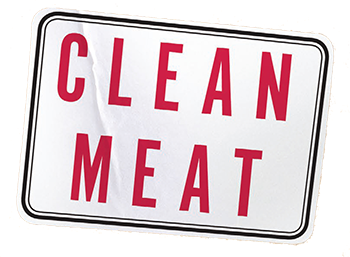Israel Emerges as Mecca for the Animal-Free Meat Industry
Israel has already made a name for itself as a “start-up nation" with its thriving tech sector and entrepreneurial ecosystem. Now, the small Middle Eastern nation is driving innovation in the alternative and cultivated meat industry—to the benefit of the entire world.
This fact was on plain display at Food Tech Israel, an expo held in November 2022 in Tel Aviv that showcased the country's leaders in this increasingly competitive sector. It's clear that Israel is among the leading hubs for innovation in food technology today.
As TIME reported, at the expo, attendees could enjoy sweets that with low glycemic impact, vanilla grown in a hydroponic process allowing for greater production volume, and nutrition bars with a nutrient profile similar to breast milk.
If you were a meat lover, you were especially in luck: Food Tech Israel’s exhibitors had a plethora of alternative and cultivated meat products to enjoy. The products on offer included animal-free burger sliders, lamb kebabs, chicken sausage, roast beef, steak, and much more—all made with some of the most exciting techniques emerging from the 21st century food industry.
Steaks and chicken were made with biopsied stem cells grown in steel cultivators. Roast beef was grown from fermented plant proteins. Ground beef, burgers, and kebabs were derived from plant-based proteins, too. Even the cheese in the grilled cheese sandwiches offered as accompaniment was cultivated from microalgae.
It’s not too much to say that you could walk through the exhibit space and see the future of meat in front of you.
Investing in innovation
In Israel, the number of alternative protein companies, and the financial investment in them, are second only to the United States. Since 2020, this sector in Israel has amassed nearly $1 billion USD in funding.
In the fall of 2022, the country’s government placed alternative protein and other food tech innovations among its top five research and development priorities. This decision is based on Israel’s focus on building its national food security chain, addressing climate change, and supporting new avenues for economic growth. In 2021, the country’s Innovation Authority directed $18 million USD into supporting a cultivated meat consortium comprised of companies and academic researchers. The long-term goal: to scale up in the most cost-efficient manner possible.
Necessity leads to invention
Culturally, Israel is well-suited for its role as an incubator of the alternative meat industry. While it’s among the world’s biggest consumers of red meat and poultry, it has by many estimates more vegans among its population, percentage-wise, than just about any other country.
A 2020 survey showed that 5 percent of Israelis self-ID as vegan, another 4 percent as vegetarian, and 8 percent are “flexitarian,” meaning they are at least partially vegetarian. A different 2017 survey revealed that almost one-quarter of respondents wanted to reduce the amount of meat they consumed.
Apart from India, where about 9 percent of the population identifies as vegan, a 2021 study showed other countries—including Germany and the U.S.—well under five percent.
There are also obvious geographic and historical reasons behind Israel’s rise as a food innovator: its location in an arid, water-scarce region, its unusual degree of political isolation from its neighbors, and the fact that its people have grown up for generations amid military conflicts. Israelis are ag-tech leaders in greenhouse design, advanced drip irrigation and water desalination techniques, and hydroponic food production.
Basically, Israelis innovate because they’ve always had to.
Making a stand against climate change
Middle Eastern countries are intimately familiar with climate change, which is driving water shortages in Israel and across the region. The less arable land and water available, the harder and more expensive it is becoming to produce reliable supplies of new crops.
As the nonprofit thinktank Good Food Institute notes, growing cultivated meat in a cultivator cuts down on water usage by close to 80 percent compared to traditional beef farming. In addition, cultivated meat production may need only about 5 percent of the land area required for beef farming.
Some Israeli firms that lead the way
So, who are some of the leaders in Israel’s vibrant alternative meat space? Here are only a few of those with a prominent presence at Food Tech 2022:
Aleph Farms started in 2017 as a joint venture between Strauss Group, one of Israel’s largest traditional food companies, and Technion, among the country’s most prestigious research universities. Aleph touts its production of the first cultivated meat grown in space, the first cultivated ribeye steak, and other achievements. Its team has earned plaudits from the likes of the World Economic Forum and actor-activist Leonardo DiCaprio for its focus on systemic innovations in agriculture to help fight climate change.
Founded in 2019, Steakholder Foods uses proprietary 3-D bioprinting technology to produce real steaks. Using living meat cells harvested from animals, the company is creating steaks with the precise balance of muscle and fat to yield the rich juiciness of conventional animal steaks. It’s also working to produce chicken, pork, and even seafood using the same sustainable techniques.
Another cultivated meat pioneer, Believer is producing meat from non-GMO animal cells. The company had a busy 2022—in addition to producing the first cultivated lamb, it recently broke ground on what will become the world's largest cultivated meat production facility in North Carolina.
So, if Israeli start-ups have anything to say about it, 2023 looks set to offer the world an expanding—and deliciously sustainable—universe of cultivated meat and other animal meat alternatives.
